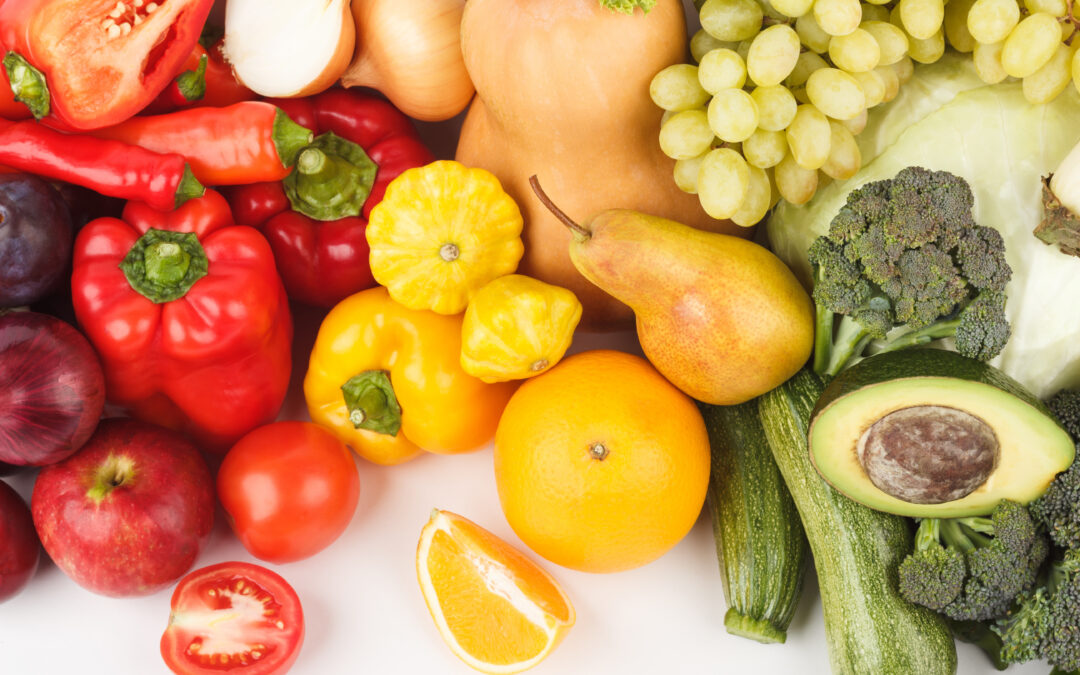Many people with autoimmunity spend a lot of time online, searching and researching the right diet for autoimmune disease. The problem is, it’s extremely overwhelming. There is a veritable tsunami of information online, with many people claiming to be experts or to have the magic answer. And to make matters worse, so much of the advice is conflicting! How do you ever know what is right, what is overstated and what is just plain terrible advice?
Have you tried:
- Going vegan?
- Cutting out all alliums?
- Probiotic yoghurt?
- An expensive type of honey?
- Cutting out all foods beginning with B?
I exaggerate – but sometimes it feels like everyone else is an expert when it comes to what you’re putting into your body. But when you do look into dietary control of autoimmune disease, the options can be overwhelming. Do you cut out grains? Dairy? Both? What about sugar – and is it necessary to cut out natural sugars as well? It can feel like a minefield.
Here I get into the overview of why diet can affect your autoimmunity symptoms, some of the ingredients to watch out for, and the importance of elimination – but why you should still keep your diet as diverse as possible.
Can Autoimmune Disease Be Controlled by Diet?
If you have an autoimmune disease, different foods can cause a reaction or flare-up. The link is a lot more obvious if you have an autoimmune disease such as coeliac disease or ulcerative colitis, as these are digestion based – and the symptoms can often be immediate. Running to the toilet, stomach cramps, and aches and pains become a fact of life. But other autoimmune diseases can also be affected by the meals you eat – documented examples include rheumatoid arthritis, systemic lupus erythematosus (SLE), and Hashimoto’s thyroiditis.
Sometimes a new ingredient can trigger an autoimmune flare-up, even if you’ve had no issues with that particular type of food before. Your immune system is always on high alert for proteins it considers the enemy. When it’s overworking, in the case of an autoimmune disease, sometimes it detects proteins in food as a threat. Many immune cells gather in your gut wall and an inflammatory response is triggered, causing painful symptoms. Over time, it can cause a breakdown in the permeable barrier of the gut (leaky gut) and these proteins and autoimmune responses can cause additional symptoms throughout your body.
Is There a Special Diet for Autoimmune Disease?
There are several diets that can be beneficial for autoimmune disease, depending on your type of autoimmunity.
- Gluten-free diet: Mainly designed for people with coeliac disease, but removing gluten from your diet may be beneficial for other forms of autoimmunity. Not just a case of avoiding bread and pasta – gluten is found in a lot of ready-made sauces, soups, meat substitutes, and alcoholic drinks. Most processed foods contain gluten.
- Autoimmune Protocol diet (AIP): Often called the Paleo autoimmune protocol diet – it’s a more restrictive form of paleo. Paleo involves going back to basics: eating what humans ate millennia ago, focusing on greens, meat, fish, and fruit. There’s also an elimination element to the diet, where you cut out certain ingredients before reintroducing them to see if your body reacts. At times, the diet can feel very strict.
- Anti-inflammatory diet: Similar to the Mediterranean diet, this can aid people with rheumatoid arthritis, as it focuses on foods like olive oil and fatty fish as well as nuts, seeds, legumes, fruit, and vegetables.
- Plant-based diet: A diet comprised mostly of fruit and vegetables, legumes, and whole grains, avoiding the convenient vegan processed foods now found in every supermarket. It involves cutting back on animal products – but not completely. It’s not the same as veganism, which avoids all animal products.
As you can see, many of these diets overlap, as they avoid processed foods, and place importance on plenty of fresh ingredients that you cook yourself. However, only the AIP diet allows you to eliminate and reintroduce certain ingredients – although you risk further health issues if you go it alone without a nutritionist to guide you.
What are the disadvantages of the autoimmune elimination diet?
Apart from the difficulty, and having to plan everything well in advance, when undergoing the AIP diet, there is a risk of nutritional deficiencies and malnutrition. Cutting out so many enjoyable foods at once can cause periods of low mood. And one of the biggest concerns for me as a nutritionist is the lack of diversity in what you’re eating.
What Foods Can Trigger Autoimmune Disease?
Unfortunately, anything has the potential to cause an autoimmune flare-up. This is by no means an exhaustive list of the ingredients that could be making your symptoms worse, but it does feature many of the usual suspects.
- Gluten – best avoided if you have a coeliac disease diagnosis, but it also can be bad news if you have an inflammatory bowel disease or another autoimmunity.
- Dairy – known to cause inflammation, cow’s milk can make your symptoms worse.
- Alcohol – a toxin that can perform a number on your immune system and gut microbiome. I’ve written an articleon this very subject which explains more.
- Caffeine – a hard one to hear, but this stimulant can have a poor effect on some autoimmune diseases, such as rheumatoid arthritis, and on the management of Hashimoto’s disease.
- Refined sugar – intake of sugar can cause inflammation, and lead to an unbalanced gut microbiome.
- Eggs – contain bioactive compounds that can cause inflammation in some people.
- Legumes – contain lectins, which can alter intestinal permeability but also provoke an autoimmune response.
But before you start making lists of ‘safe’ and ‘unsafe’ foods and planning meals it’s important to acknowledge that you need to do what’s best for you and your body. Any dietary changes you make need to be individual to you – and they often involve a lot of trial and error. What may work for someone else may not be the right fit for you. And you also need to take into account the diversity of your diet – it isn’t feasible to cut large food groups out completely.
How Important Is Diet Diversity With Autoimmune Disease?
So you’ve learned about foods you may need to eliminate on a trial basis – and it’s important to remember that it is only on a trial basis, with the hope to reintroduce these foods to find out what causes your flare-ups. But keep in mind the importance of diversity in your diet. I’m sure you already know about eating the rainbow – a wide variety of vegetables and fruits in different hues. This spreads out the range of nutrients you put in your body. But diet diversity is also important for those of us with autoimmune disease.
If you get too restrictive with your diet in a bid to reduce inflammation, it can cause difficulties down the line even more frustrating than having the same exact meals every day! A lack of diversity can have a negative effect on your gut microbiome, which, long term, can cause more issues with your gut. A lack of diversity in your diet can also become tricky if you develop a new food sensitivity – always a risk in autoimmunity. Suddenly you’ve gone from being able to eat ten foods to only being able to eat six, and your options are shrinking.
Food diversity is crucial for weaning infants as it can help prevent allergies. As adults, we can’t turn back the clock to give ourselves a better start in life but we can ensure we eat as wide a range of foods as our autoimmunity allows. And most importantly, we need to remember we are individuals. While giving up certain ingredients may have helped your acquaintance, it may not have the same positive result for you. The results are not set in stone with autoimmunity, and it requires some trial and error – and the help of a registered nutritionist – to narrow down your flare-up foods.
Lastly, too much restriction and fear of food is not mentally or physically healthy. It’s not possible to heal, especially an autoimmune disease, in an environment of fear. It is better to eat a plate of food that is not nutritionally perfect, feeling comforted and loved at a table of family and friends, than it is to eat a plate of technically perfect food, while feeling sad and lonely. The impact of those two plates of food is affected by the environment and the emotions surrounding eating them.
For a diet that support healing, it’s necessary to work out what your hard lines are and where the grey areas are and also how to eat food that you love and that makes you happy.
Functional Medicine for Autoimmune Disease
Functional medicine is the best approach to help you look for the root causes of your autoimmune flare-ups. Whether they are caused by diet, stress, sleep issues, or more likely a combination of all these lifestyle elements. Functional medicine understands that you are an individual that needs an individual diet and plan of treatment.
If you’re feeling overwhelmed by all the possible diets and foods to avoid – don’t be. My signature course Foundations of Health helps you improve your health from the foundations up, from the comfort of your own home. It’s not impossible – you can strike a balance between diet diversity and cutting out the ingredients that are hurting you.
If you would like to get in touch to organise nutrient deficiency testing or discuss how to address your on-going issues, please drop me a line here.
Like what I have to say and want to hear more? Sign up for my newsletter for monthly information from me including clinic updates, recommendations for podcasts and books that I have enjoyed each month and more.






